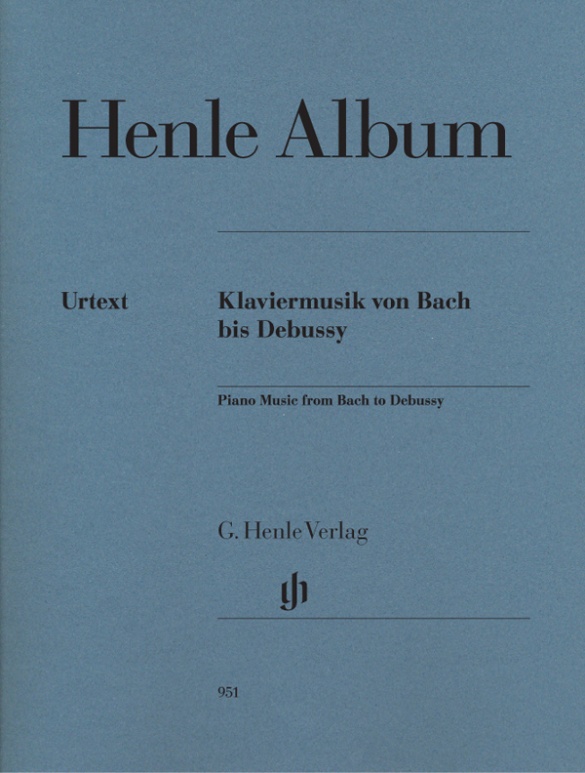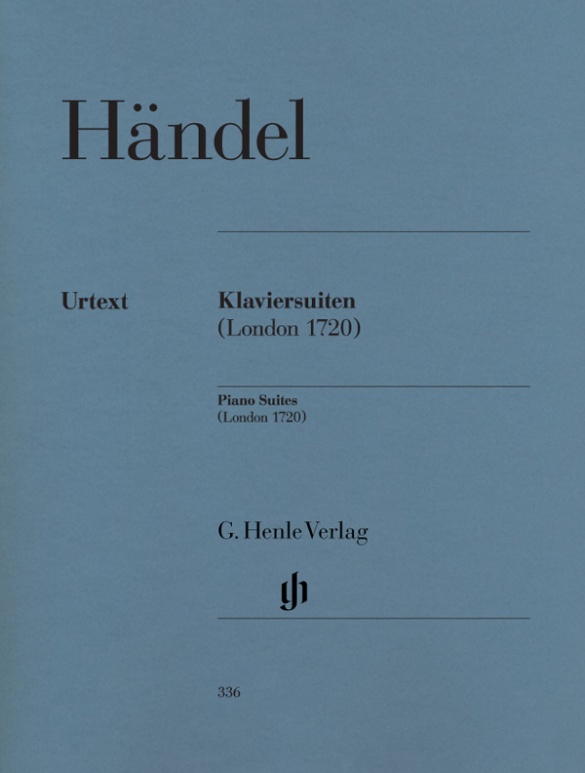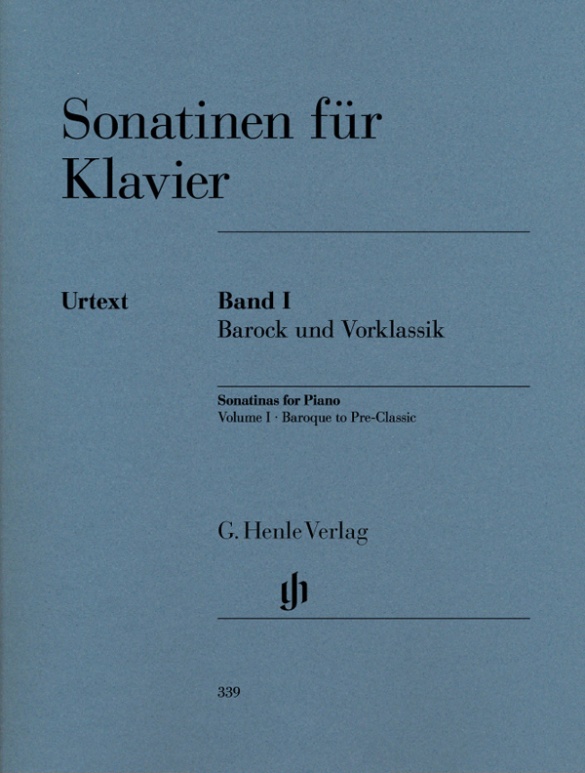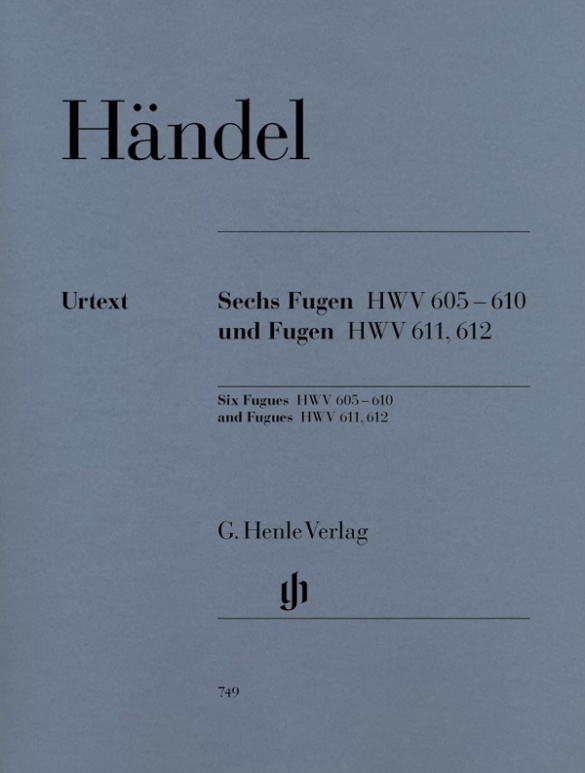

Georg Friedrich Händel
Six Fugues HWV 605-610 and Fugues HWV 611, 612
Handel and fugues? The connection is not the first thing to cross our minds when we think of baroque keyboard music. Yet Handel, besides writing keyboard fugues as parts of larger works, also turned out separate fugues beginning from his days in Hamburg. Our edition combines the well-known Six Fugues (HWV 605–610) with two isolated fugues (HWV 611 and 612). Handel later reused some of these fugues in his concerti grossi, the oratorio “Israel in Egypt”, and in a trio sonata, where they have become far more familiar today than the originals. Handel’s fugues were largely notated without ornaments. Our edition deliberately reproduces them in this original form, thereby giving performers latitude for their own interpretations.
Content/Details
(Explanation)
About the Composer
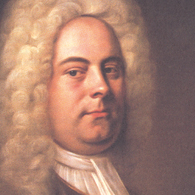
Georg Friedrich Händel
He numbers among the most important composers of Italian operas and is a major proponent of the oratorio; his immense oeuvre also comprises concerti grossi and solo concertos, liturgical music, chamber music, and music for keyboard instruments. He worked in London.
| 1685 | Born in Halle (Saale) on February 23. |
| 1702 | Organist at the Palace Cathedral in Halle. |
| 1703 | Employed as a violinist, later as a harpsichordist, at the Oper am Gänsemarkt in Hamburg; premiere in 1705 of the opera “Der in Krohnen erlangte Glücks-Wechsel, oder: Almira, Königin von Castilien” (“The Change of Fortune Won in Crowns, or: Almira, Queen of Castile”). |
| 1706–10 | Stay in Italy, with opera performances. |
| 1710 | Employed as music director by the Elector of Hanover. The 1711 London premiere of “Rinaldo” is a great success. In 1712, he will travel once more to London, where he will remain for the rest of his life. |
| from 1720 | Important position at the Royal Academy of Music, which he founded in 1717. |
| from 1724 | Successful premieres of “Giulio Cesare in Egitto,” “Tamerlano,” “Rodelinda” in 1725, and “Alessandro” in 1726. |
| 1728 | After the dissolution of the Royal Academy of Music, Handel continues to lead his own company. |
| 1733 | Competition from the Nobility Opera, which is supported by the aristocracy. Premiere of “Orlando.” |
| 1734 | Engagement of a French ballet troupe to outdo the Nobility Opera. Integration of French elements into his own operas. |
| from 1735 | Premiere of “Alcina,” “Giustino” in 1737, “Serse” in 1738 (containing the famous largo “Ombra mai fù”). |
| 1736 | Three “Water Music Suites,” HWV 348–350. |
| 1739 | Twelve “Concerti grossi,” Op. 6, after Corelli’s example. |
| 1741 | Unsuccessful premiere of the melodrama “Deidamia”. From then on, composition of oratorios, including “Messiah” (1741), “Judas Maccabaeus” (1746), and “Jephtha” (1751). |
| 1749 | “Music for the Royal Fireworks,” HWV 351. |
| 1759 | Death in London on April 14. |
About the Authors
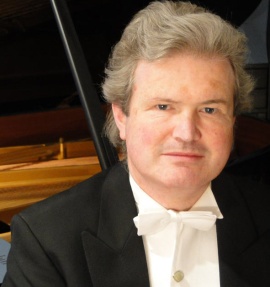
Michael Schneidt (Fingering Piano)
Michael Schneidt, born in Munich, received his piano education at the Staatliche Hochschule für Musik und Theater in Munich, studying with Hugo Steurer and Klaus Schilde. He then completed his artistic state examination with distinction as well as his master-class diploma. He continued his education on a grant from the DAAD with Alessandro Specchi in Florence, also taking master-classes with Paul Badura-Skoda and Bruno Leonardo Gelber. Michael Schneidt has been a prize-winner at international piano competitions (1st prize Viotti-Valsesia, Italy), has done radio and TV broadcasts and also made CD recordings; he has also premiered many contemporary piano works. He has performed in Europe (e.g. at the Prague Spring International Music Festival and at the German Mozart Festival), in Japan and in South America.
Michael Schneidt is Professor of Piano at the Staatliche Hochschule für Musik und Theater in Munich. He has given master-classes in Germany, Switzerland, the Czech Republic and Japan, and is from time to time a member of the jury at music competitions.
Product Safety Informations (GPSR)

G. Henle Verlag
Here you can find the information about the manufacturer of the product.G. Henle Verlag e.K.
Forstenrieder Allee 122
81476 München
Germany
info@henle.de
www.henle.com
Handel’s Six Fugues presented in this new volume are extremely rare birds, especially in terms of piano performance … The pedagogical potential of the two final fugues, which are relatively straightforward both technically and musically, is most promising.
International Piano, 2005recommendations
autogenerated_cross_selling
Further editions of this title
Further editions of this title


